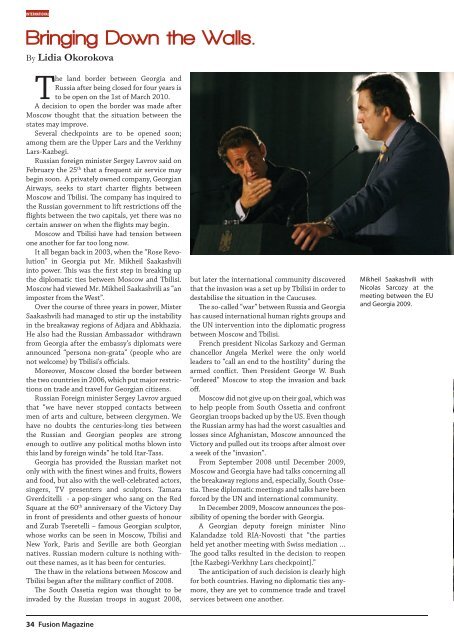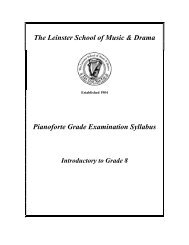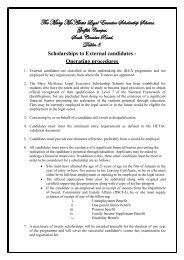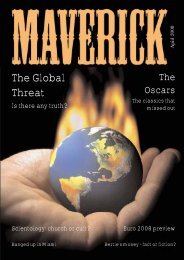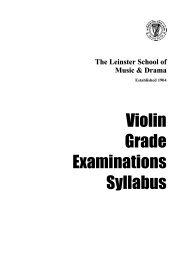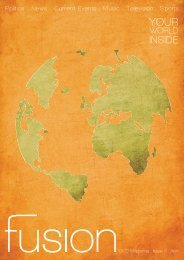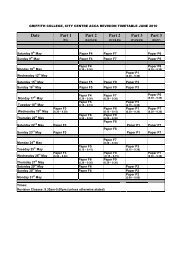internationalBringing Down the Walls.By Lidia OkorokovaThe land border between Georgia andRussia after being closed for four years is<strong>to</strong> be open on the 1st of March 2010.A decision <strong>to</strong> open the border was made afterMoscow thought that the situation between thestates may improve.Several checkpoints are <strong>to</strong> be opened soon;among them are the Upper Lars and the VerkhnyLars-Kazbegi.Russian foreign minister Sergey Lavrov said onFebruary the 25 th that a frequent air service maybegin soon. A privately owned company, GeorgianAirways, seeks <strong>to</strong> start charter flights betweenMoscow and Tbilisi. The company has inquired <strong>to</strong>the Russian government <strong>to</strong> lift restrictions off theflights between the two capitals, yet t<strong>here</strong> was nocertain answer on when the flights may begin.Moscow and Tbilisi have had tension betweenone another for far <strong>to</strong>o long now.It all began back in 2003, when the “Rose Revolution”in Georgia put Mr. Mikheil Saakashviliin<strong>to</strong> power. This was the first step in breaking upthe diplomatic ties between Moscow and Tbilisi.Moscow had viewed Mr. Mikheil Saakashvili as “animposter from the West”.Over the course of three years in power, MisterSaakashvili had managed <strong>to</strong> stir up the instabilityin the breakaway regions of Adjara and Abkhazia.He also had the Russian Ambassador withdrawnfrom Georgia after the embassy’s diplomats wereannounced “persona non-grata” (people who arenot welcome) by Tbilisi’s officials.Moreover, Moscow closed the border betweenthe two countries in 2006, which put major restrictionson trade and travel for Georgian citizens.Russian Foreign minister Sergey Lavrov arguedthat “we have never s<strong>to</strong>pped contacts betweenmen of arts and culture, between clergymen. Wehave no doubts the centuries-long ties betweenthe Russian and Georgian peoples are strongenough <strong>to</strong> outlive any political moths blown in<strong>to</strong>this land by foreign winds” he <strong>to</strong>ld Itar-Tass.Georgia has provided the Russian market no<strong>to</strong>nly with with the finest wines and fruits, flowersand food, but also with the well-celebrated ac<strong>to</strong>rs,singers, TV presenters and sculp<strong>to</strong>rs. TamaraGverdcitelli - a pop-singer who sang on the RedSquare at the 60 th anniversary of the Vic<strong>to</strong>ry Dayin front of presidents and other guests of honourand Zurab Tseretelli – famous Georgian sculp<strong>to</strong>r,whose works can be seen in Moscow, Tbilisi andNew York, Paris and Seville are both Georgiannatives. Russian modern culture is nothing withoutthese names, as it has been for centuries.The thaw in the relations between Moscow andTbilisi began after the military conflict of 2008.The South Ossetia region was thought <strong>to</strong> beinvaded by the Russian troops in august 2008,but later the international community discoveredthat the invasion was a set up by Tbilisi in order <strong>to</strong>destabilise the situation in the Caucuses.The so-called “war” between Russia and Georgiahas caused international human rights groups andthe UN intervention in<strong>to</strong> the diplomatic progressbetween Moscow and Tbilisi.French president Nicolas Sarkozy and Germanchancellor Angela Merkel were the only worldleaders <strong>to</strong> “call an end <strong>to</strong> the hostility” during thearmed conflict. Then President George W. Bush“ordered” Moscow <strong>to</strong> s<strong>to</strong>p the invasion and backoff.Moscow did not give up on their goal, which was<strong>to</strong> help people from South Ossetia and confrontGeorgian troops backed up by the US. Even thoughthe Russian army has had the worst casualties andlosses since Afghanistan, Moscow announced theVic<strong>to</strong>ry and pulled out its troops after almost overa week of the “invasion”.From September 2008 until December 2009,Moscow and Georgia have had talks concerning allthe breakaway regions and, especially, South Ossetia.These diplomatic meetings and talks have beenforced by the UN and international community.In December 2009, Moscow announces the possibilityof opening the border with Georgia.A Georgian deputy foreign minister NinoKalandadze <strong>to</strong>ld RIA-Novosti that “the partiesheld yet another meeting with Swiss mediation …The good talks resulted in the decision <strong>to</strong> reopen[the Kazbegi-Verkhny Lars checkpoint].”The anticipation of such decision is clearly highfor both countries. Having no diplomatic ties anymore,they are yet <strong>to</strong> commence trade and travelservices between one another.Mikheil Saakashvili withNicolas Sarcozy at themeeting between the EUand Georgia 2009.34 Fusion Magazine
Saving GreeceinternationalBy Oscar LongTo those not in favorof bailing Greece out(70% of the Germanpopulation whosesavings will be used<strong>to</strong> cover Greece‘sspendthrift government),it may seemthat saving Greece islike putting a bandaid on cancer.Police take on protestersduring the recent Greeceriots.The predicament Greece hasfound itself in, has <strong>to</strong> comeas a bit of a relief <strong>to</strong> the Irishgovernment. I imagine when Biffowatches the footage of mass protestsin Athens that he felt in some waysimilar <strong>to</strong> how John Terry must havefelt when those naked pictures ofAshley Cole surfaced in the tabloids.That the world’s attention is pointedsomew<strong>here</strong> else if even for only ashort while.The strikes in Greece which haveseen everything shut down from pos<strong>to</strong>ffices <strong>to</strong> airports and schools <strong>to</strong> shipyardsare, in response <strong>to</strong> the austerityprogramme, which is <strong>to</strong> be put in place<strong>to</strong> combat Greece’s massive debt.Last year Greece’s economy contractedby 2% which was below theaverage (Ireland’s economy contractedby 7.25%). Their unemployment figures are a lotbetter than Irish, which makes it all more as<strong>to</strong>undingthat Greece after suffering barely a ripple in theglobal recession should find its debt <strong>to</strong> be 124% oftheir GDP (Ireland’s is at 46%).The socialist government that is in power inGreece is in a tricky situation because they wereelected on the pretence that they would be able <strong>to</strong>find the money <strong>to</strong> get out of the mess the countryis in without raising taxes and making cuts <strong>to</strong>public spending.T<strong>here</strong> was meeting in Brusselsin February w<strong>here</strong> EU leadersdiscussed Greece amongs<strong>to</strong>ther things. It was decidedthat Europe (most importantlyGermany as they have all themoney) would not let Greecedefault on its loans. The mainreason for this is fear that ifGreece, being the proverbialcanary, defaulted on its debtit would damage the euro andthen Spain, Portugal and Irelandand pretty much the whole Eurozone would cave in. So for now,with cautious backing from Germanyand other EU countriesthe Greek ship has steadied andinves<strong>to</strong>rs can buy Greek bondssafe, knowing that Germanyguarantees their return.To those not in favourof bailing Greece out (70%of the German populationwhose savings will be used<strong>to</strong> cover Greece‘s spendthriftgovernment), it may seem that saving Greece islike putting a band aid on cancer. If Europe is set<strong>to</strong> mop after them, this will make Greek governmentmore likely <strong>to</strong> overspend and financial institutions<strong>to</strong> take much greater risks.The Euro single currency may be the problem.When a country finds itself in a banking crisis likeIreland did or has borrowed <strong>to</strong>o much like Greece,their own sovereign currency may lose value andit can help foreigners <strong>to</strong> buy government’s bondsfrom that country cheaper.In return, the country gets out of whatevercrisis it may be in. But looking at Ireland andGreece, the Euro zone’s countries, they hav nooption <strong>to</strong> devalue the currency because it is controlledby the European Central Bank. It may makesense for at least one or two of the PIIGS (Portugal,Ireland, Italy, Greece, Spain) <strong>to</strong> leave the Euroso it can get their country back in order. The raisingand lowering of interest rates <strong>to</strong> suit Germanyor France is not really beneficial at all <strong>to</strong> the PIIGSwhose economic situation is the opposite. Britainand Sweden still haven’t joined the single currencyso it’s not that crazy that other countries may lookfor stabilization of their own country’s woes inthis manner.The Greeks have a phrase: pathei mathos, whichmeans learning by suffering. This is what the res<strong>to</strong>f Europe expects from Greece as a condition oftheir guarantee. T<strong>here</strong> will be tax rises on fuel,property alcohol and <strong>to</strong>bacco. T<strong>here</strong> will be a freezeon public sec<strong>to</strong>r pay and the retirement age willhave <strong>to</strong> rise from 61 <strong>to</strong> 63(this last measure mustsicken the Germans as their retirement age is 65with talk of it being raised <strong>to</strong> 67). The Greeks arenot taking this sitting down, they are out if forcefight protesting about it, clashing with police.A lot of Greeks blame parasite financial institutionsfor getting them in<strong>to</strong> this mess. Greece alsohas a serious tax evasion problem with over halfof the working population claiming an income ofless than 12,000 euro, which is the tax threshold.Like in Ireland, it is often the most vulnerable insociety who are expected <strong>to</strong> cough up when timesare <strong>to</strong>ugh. When it became apparent how seriousthe problems facing Ireland were, Brian Lenihanrather than trouble the banks and property developerswho you could say hold the lions share ofresponsibility for the situation, decided that itwould be a good start <strong>to</strong> scrap the medical card forOAP’s. Just like the Greeks are doing now, the over65’s were out in force and Lenihan decided thatmaybe it wasn’t that smart <strong>to</strong> piss off the demographicthat is most inclined <strong>to</strong> vote in elections.T<strong>here</strong> is a lot of corruption in Greece and manyquite rightly feel aggrieved that they are pickingup the tab for the reckless self serving actions of afew. It all sounds very familiar.Fusion Magazine 35


